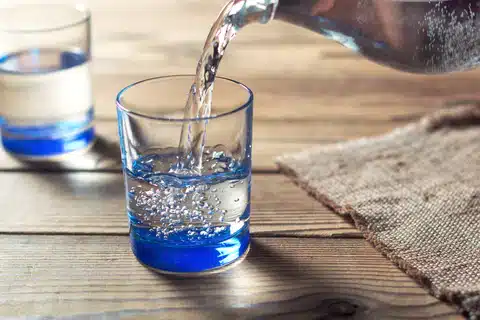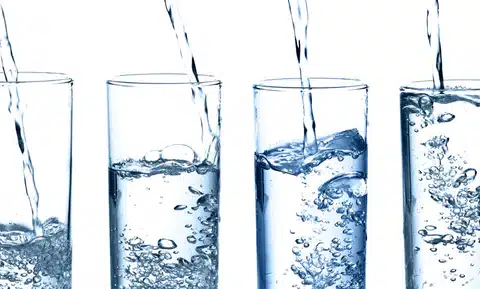We all know we need to eat healthy, with a diet rich in fruit, vegetables, lean protein, water and wholegrains. It helps ward off diseases, maintains body functions and provides you with the right amount of vitamins, minerals and antioxidants.
But eating and drinking the right things can also have a drastic effect on your bladder, especially is you suffer from incontinence.
What we put in our bodies has a direct effect on our bladders and bowels. Certain foods and drinks are known to irritate the bladder, so we recommend you avoid them. Typically, foods that are bad for the bladder are foods that are sugary, spicy, acidic or have caffeine in them.

Foods and Drink That Can Contribute to Incontinence
Below is a list of food and drinks that can irritate the bladder, and may contribute to bladder leaks, overactive bladders and incontinence
- Coffee and tea
- Alcohol
- Carbonated beverages like soft drink, sparkling water or seltzer water
- Honey
- Sugar and artificial sweeteners
- Corn syrup
- Citrus foods and juices such as oranges, limes, grapefruit and lemons
- Tomatoes and tomato-based products
- Spicy food
- Chocolate
- Milk and milk products
While this is not an exhaustive list, many of these foods could be contributing to your incontinence or overactive bladder conditions. These foods and drinks won’t effect everyone the same way so it is best to document what you eat ad drink to find your specific triggers. Once you start to see a trend in what you’re eating and your incontinence, you can learn what to avoid in the future.

How Much Water Should I be Drinking?
Many people with incontinence feel like they need to limit their fluid intake. This is because they assume that drinking too much of anything, including water, may be causing their incontinence or increase the risk of an accident. In general, you shouldn’t limit your water intake. Ensuring you stay hydrated is important for your overall health. Your body needs water to function properly and limiting your water intake may cause things to get worse.
Not only can you risk dehydration – that has its own side effects – you run the risk of your urine becoming ultra-concentrated. This means it is more likely to smell bad if you have an accident, as well as causing unwanted odours. Concentrated urine can also irritate your bladder, leading to more leaks and accidents. For a long time we have been told to drink 8 glasses of water a day. But in reality, everyone’s water intake needs are different. You should be drinking enough to quench your thirst, while listening to your body to know the right amount of water intake for you.

How Restricting Fluids Can Cause Further Health Issues
Dehydration is one of the biggest risks when you restrict your fluid and water intake. Our bodies need water to function properly. Without water, you will become dehydrated and you can experience symptoms like:
- Headaches
- Dizziness
- Muscle cramps
- Fatigue/lack of energy
- Dark yellow, strong smelling urine
- Irritability
- Fainting
In the case of mild dehydration, drinking water, Gatorade or broth can help. Two to three cups should do the trick and you’ll be feeling better within the hour.
However, in the case of severe dehydration, you may require hospitalisation and even intravenous hydration for 24 hours in order to recover.
Further, drinking fewer fluids during the day can irritate the bladder leading to more leaks. By trying to avoid fluids, you are actually making the situation worse. As we said before, when you drink less water, your urine becomes very concentrated and can irritate the bladder, leading to bladder leaks. This concentrated urine can also lead to bladder infections and urinary tract infections, which we all want to avoid.
Finally, by avoiding water, when you do have an incontinence leak, the accident will smell more. Which means you are going to need to cover up unpleasant odours, as well as deal with the urine leak.

How Can I Tell If I’m Drinking Enough Water?
How do you know if you’re drinking the right amount of water for your body? There is an easy way to test. It is called the skin pinch test.
How to do a Skin Pinch Test
To test if you have enough water in your system, you can pinch the skin on the back of your hand. Pinch it and then let the skin go. If your body is fully hydrated, your skin should bounce back immediately. However, if it takes time for the skin to return to normal, you may be dehydrated. Whatever you do, don’t skimp on your water each day. If you’re finding it hard to fit in all the water you need, try adding in a little cucumber or some berries.
Need some help managing your incontinence? Holistic Incontinence has a wide range of products to help you manage urine leaks throughout the day. Explore our range now or chat to one of our helpful staff members to find the right product for your needs.
